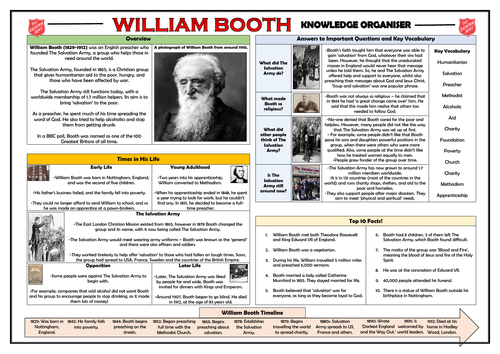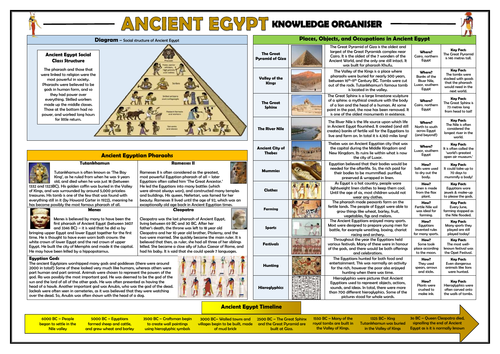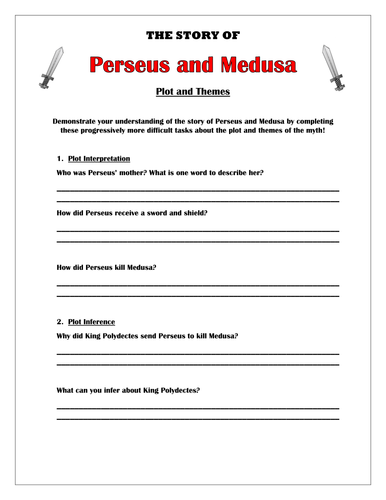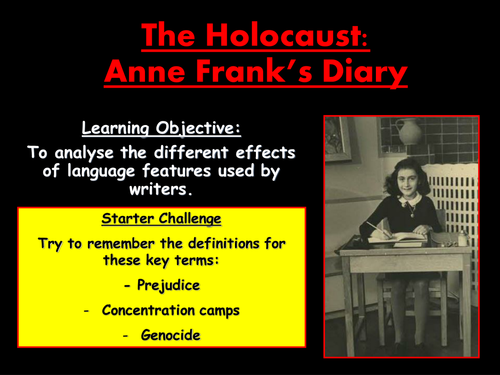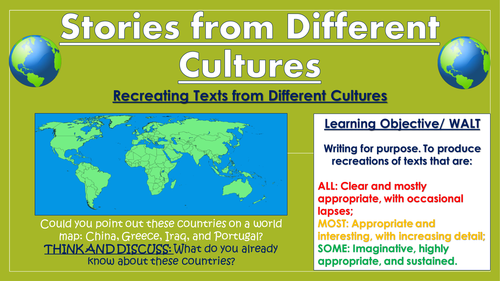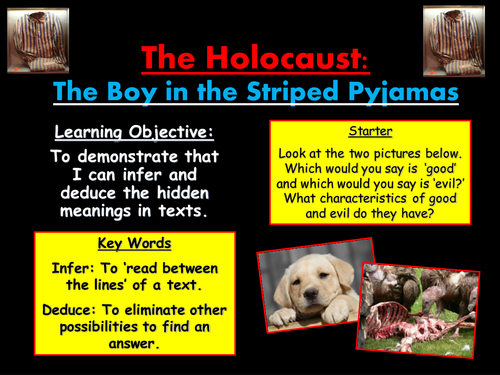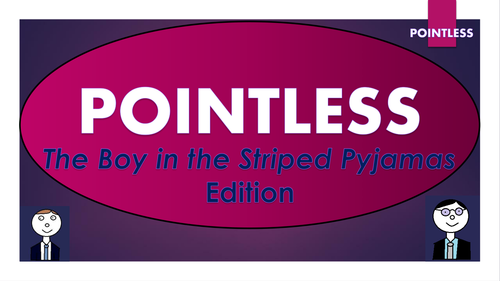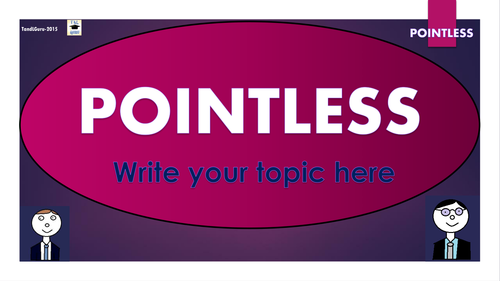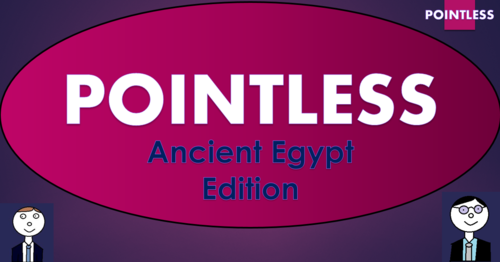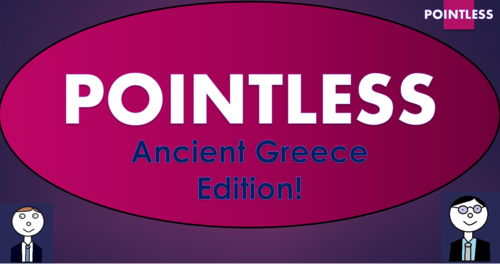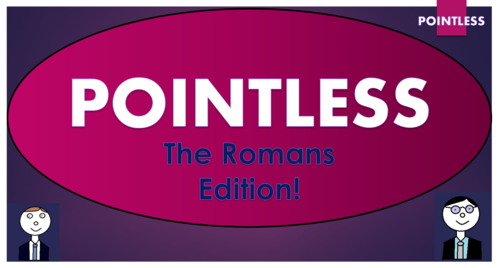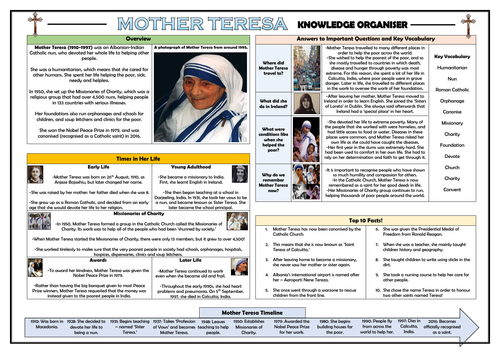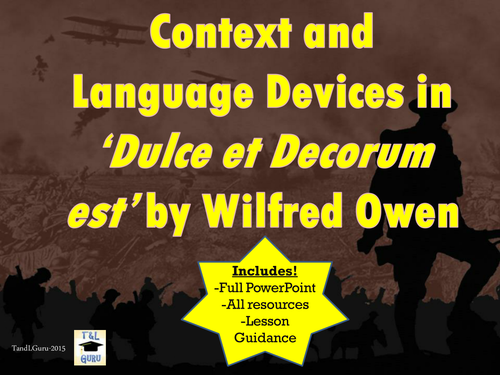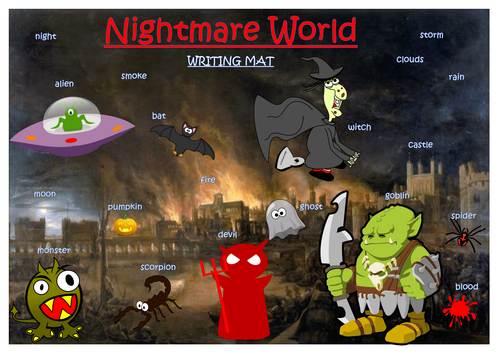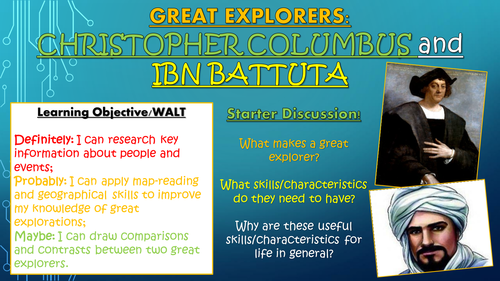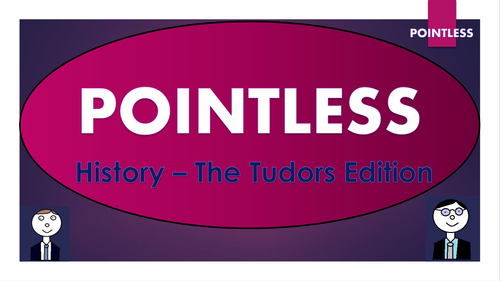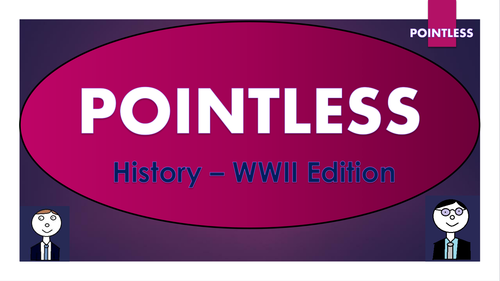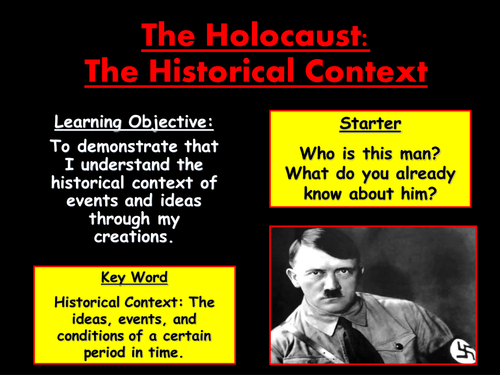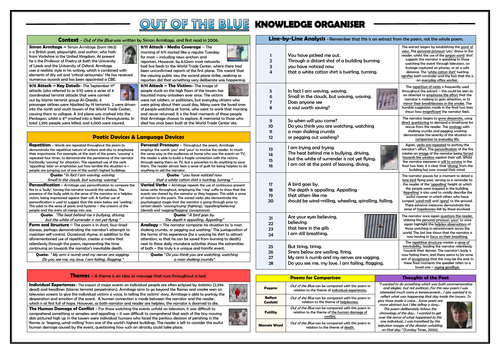
3k+Uploads
1951k+Views
2269k+Downloads
History

William Booth Knowledge Organiser!
This clear, detailed and visually-appealing resource offers a complete reference point for children learning about William Booth, particularly those completing a history study of ‘Significant Individuals.’ It contains comprehensive sections entitled:
Overview;
Times in His Life;
Important Vocabulary;
William Booth Timeline;
Answers to the Important Questions;
Top Ten Facts.
The resource is designed to be printed onto A3, and is provided as both a PDF and a Word version (so that you can edit if you want to). All images used are licensed for commercial use.

Ancient Egypt Knowledge Organiser!
This clear, detailed and visually-appealing resource offers a complete reference point for students learning or revising knowledge relating to the Ancient Egyptians. It contains comprehensive sections on:
Ancient Egyptian socal structure (with diagram);
Ancient Egyptian pharaohs;
Ancient Egyptian gods;
Ancient Egyptian places;
Ancient Egyptian objects and occupations.
Ancient Egyptian timeline.
The resource is designed to be printed onto A3, and is provided as both a PDF and a Word version (so that you can edit if you want to). All images used are licensed for commercial use and are cited on a separate document (included). The resource is most suitable for children in KS2 or KS3.

Greek Myths: Perseus and Medusa
This engaging and detailed lesson enables students to gain a deep understanding of the Greek Myth 'Perseus and Medusa.' In doing so, students learn to interpret and infer the key elements of plot in texts, comment upon the key themes and plot ideas running through a text, and empathise with the first-person perspective of a character.
The lesson follows a clear, logical, bite-size learning journey, which guides students towards differentiated learning objectives. Over the course of this journey, they become able to:
- Define the key term 'bravery' and understand its position as a theme within the plot;
- Read the story 'Perseus and Medusa' and interpret the key meanings;
- Identify, explain, and analyse the key plot elements and themes in 'Perseus and Medusa;'
- Storyboard the main plot features in the text;
- Engage deeply with the text by inferring the thoughts and feelings of the main character;
- Peer assess each other's learning attempts.
This resource pack includes:
- A visually engaging whole-lesson PowerPoint presentation;
- Paper copies and online links to the extract needed for the lesson;
- Plot and Themes worksheet;
- Storyboard template;
- A detailed lesson plan, complete with what the teacher and students should aim to achieve at each stage of the lesson.
All images are licensed for commercial use, and are cited on the final slide of the PowerPoint.

The Holocaust: Anne Frank's Diary
This lesson aims to help students to build their skill at analysing the language choices in texts, whilst also providing students with valuable SMSC messages about the horror of the Holocaust. Students also hone their skills of writing to analyse, in response to extracts from 'Anne Frank's Diary.'
Informative and engaging, this lesson follows a clear and logical learning journey. Students learn to:
- Define key terms related to the historical context of The Holocaust;
- Remember and understand key information about Anne Frank's experiences, that they learn from an engaging PowerPoint presentation;
- Read extracts from Anne Frank's diary;
- Answer a range of questions to demonstrate their understanding of Anne's diary;
- Analyse the language features used by Anne Frank to create dramatic images in the mind of the reader;
- Peer-assess each others' learning attempts.
Included in this resource pack: A comprehensive, whole-lesson, visually engaging PowerPoint presentation, which guides the teacher and learners through the lesson, a writing to analyse help-sheet, an engaging and helpful worksheet, extracts from 'The Boy in the Striped Pyjamas' and teacher guidance notes.
All images are cited at the end of the PowerPoint presentation, and are licensed for commercial use.

Stories from Different Cultures: Recreations (Double-Lesson!)
These interesting and stimulating resources enable students to read and understand a number of texts from different cultures. Students learn about different countries and their social and historical traditions. Students also learn to recreate texts, honing their knowledge of text content, language, and structure choices, whilst simultaneously building their imaginative writing skills. There are easily enough resources here for 2 lessons, at the very least.
The visually engaging, comprehensive PowerPoint presentation guides students through the following learning journey:
- Learning about the cultures of different countries where the short stories originated;
- Reading and understanding the short stories;
- Collaborating in teams in order to analyse the stories in terms of content, language, and structure;
- Understanding the key term 'recreations' and evaluating two recreations of a famous fable;
- Planning and writing their own recreation of one of the texts from different cultures;
- Peer-assessing the recreation attempts of their partner.
Provided in this resource pack is everything that you need to simply print and teach, including:
- Comprehensive PowerPoint presentation;
- Countries fact-sheets
- 4x short stories (The Island of the Sun - China, Narcissus and Echo - Greece, The Little Beggar - Iraq, and The Princess of Riddles - Portugal.)
- Mind-map activity template;
- Recreations planning template;
- Learning objectives to stick in.
All images are licensed for commercial use and are cited on the final slide.

The Holocaust: The Boy in the Striped Pyjamas
This lesson aims to help students to build their skill at inferring and deducing the hidden meanings in texts, whilst also providing students with valuable SMSC messages about the horror of the Holocaust. Students also hone their skills of writing to argue, utilising information that they gain from reading extracts of John Boyne's 'The Boy in the Striped Pyjamas.'
Informative and engaging, this lesson follows a clear and logical learning journey. Students learn to:
- Define key terms related to reading between the lines of a text;
- Consider the concepts of 'good' and 'evil' using the poem 'Vultures.' Use this knowledge to consider the actions of those involved in the Holocaust;
- Read extracts from The Boy in the Striped Pyjamas;
- Answer a range of questions designed to demonstrate students' ability to infer and deduce the hidden meanings in texts;
- Write an argumentative letter from Bruno's Grandma to his father, using a writing to argue help-sheet;
- Peer-assess each others' learning attempts.
Included in this resource pack: A comprehensive, whole-lesson, visually engaging PowerPoint presentation, which guides the teacher and learners through the lesson, a writing to argue help-sheet, a copy of the poem 'Vultures,' extracts from 'The Boy in the Striped Pyjamas' and teacher guidance notes.
All images are cited at the end of the PowerPoint presentation, and are licensed for commercial use.

The Boy in the Striped Pyjamas - Pointless Game!
Based on the popular game show 'Pointless', this resource is perfect for use as a whole lesson resource, enrichment option, or revision tool. Editable, so that you can change to any other topic or change questions. (I've also added a blank template so that you can make your own games from scratch). Containing almost 30 slides of sound clips, engaging visuals, and suitably challenging questions, this resource is effective at both promoting engagement and enhancing learning. There are several full rounds of questions to build or revisit knowledge of characters, plot, and themes in 'The Boy in the Striped Pyjamas.'
Round 1. The characters in The Boy in the Striped Pyjamas
Round 2. Quotations from the text
Round 3. Settings, themes, and objects
Round 4. Similarities between Bruno and Shmuel
The nature of this game ensures that the resource can challenge students of all levels.
A blank template has also been added, so that you can create your own games!

Pointless - Template to Create Your Own Games!
Template for you to create your own Pointless games - whatever subject or topic you are teaching!
Based on the popular game show 'Pointless', this resource is perfect for use as a starter activity, plenary, or revision tool. Editable, so that you can change to any other topic or change the questions/answers. Containing almost 30 slides of sound clips, engaging visuals, and suitably challenging questions, this resource is effective at both promoting engagement and enhancing learning.
There are several built-in rounds of questions to build students' understanding in your topics, including:
- Identifying terms from definitions
- Anagrams of key terms round
- Recalling the highest level knowledge.
The nature of the game ensures that this resource can challenge students of all levels.
NOTE: You can buy this resource alone, or in a bundle of 8 Pointless games, for only £1 more!

Ancient Egypt Pointless Game!
Based on the popular game show ‘Pointless,’ this resource is perfect for use as a whole lesson resource, enrichment option, or revision tool. Editable, so that you can change to any other topic or change questions. (I’ve also added a blank template so that you can make your own games from scratch). Containing 24 slides of sound clips, engaging visuals, and suitably challenging questions, this resource is effective at both promoting engagement and enhancing learning. There are several full rounds of questions to build or revisit knowledge of Ancient Egypt.
Round 1. The pharaohs of Ancient Egypt
Round 2. Places in Ancient Egypt
Round 3. Hieroglyphics Round
Round 4. Objects and Ideas in Ancient Egypt
Round 5. Ancient Egyptian Gods
The nature of this game ensures that the resource can challenge students of all levels.
A blank template has also been added, so that you can create your own games!

Ancient Greece Pointless Game!
Based on the popular game show ‘Pointless,’ this resource is perfect for use as a whole lesson resource, enrichment option, or revision tool. Editable, so that you can change to any other topic or change questions. (I’ve also added a blank template so that you can make your own games from scratch). Containing 24 slides of sound clips, engaging visuals, and suitably challenging questions, this resource is effective at both promoting engagement and enhancing learning. There are several full rounds of questions to build or revisit knowledge of Ancient Greece.
Round 1. Ancient Greek Gods
Round 2. Places in Ancient Greece
Round 3. Key Dates
Round 4. Objects and Ideas in Ancient Greece
Round 5. Famous Ancient Greeks
The nature of this game ensures that the resource can challenge students of all levels.
A blank template has also been added, so that you can create your own games!

Romans Pointless Game!
Based on the popular game show ‘Pointless,’ this resource is perfect for use as a whole lesson resource, enrichment option, or revision tool. Editable, so that you can change to any other topic or change questions. (I’ve also added a blank template so that you can make your own games from scratch). Containing 24 slides of sound clips, engaging visuals, and suitably challenging questions, this resource is effective at both promoting engagement and enhancing learning. There are several full rounds of questions to build or revisit knowledge of Romans.
Round 1. Roman Leaders/ Emperors
Round 2. Places in the Roman Empire
Round 3. Key Dates
Round 4. Objects and Ideas in Roman Times
Round 5. Roman Words
The nature of this game ensures that the resource can challenge students of all levels.
A blank template has also been added, so that you can create your own games!

Mother Teresa Knowledge Organiser!
This clear, detailed and visually-appealing resource offers a complete reference point for children learning about Mother Teresa, particularly those completing a history study of ‘Significant Individuals.’ It contains comprehensive sections entitled:
Overview;
Times in Her Life;
Important Vocabulary;
Mother Teresa Timeline;
Answers to the Important Questions;
Top Ten Facts.
The resource is designed to be printed onto A3, and is provided as both a PDF and a Word version (so that you can edit if you want to). All images used are licensed for commercial use.

Dulce et Decorum est - Language Devices and Context
This is a fun, engaging, and highly informative lesson/set of tasks on Wilfred Owen's war poem 'Dulce et Decorum est. This has been taught during an observation lesson where the teacher received an Outstanding judgement.
It comes complete with:
- Engaging and visual PowerPoint to guide students (and teacher!) through the lesson;
- Colourful and thought-provoking worksheet for the main analysis task;
- Lesson plan/ teacher guidance sheet, which goes through the lesson step-by-step;
- Resources to enable the teacher to make 'flags' for the development task.
As well as building students' knowledge of the text, they also learn crucial analysis and speaking and listening skills, in addition to using and applying key terminology.
All pictures are licensed for commercial use, and image authors cited on the final slide.

Writing Mats - Imagination Landscapes!
These original writing mats offer a varied and visually engaging way for students to independently increase the depth and breadth of their imaginative writing. Designed on A3, they simply need to printed and given to students before they begin creative writing tasks. They could also be used as colourful word posters to brighten up your classroom and familiarise children with new vocabulary.
The benefits of using these resources as writing mats is twofold: Firstly, the vibrant, wide-ranging, and student-friendly landscapes offer students a wealth of new writing stimuli. Secondly, the simple concrete noun labels save substantial learning time, as the effort that students may have previously exerted deliberating over the spellings of the common nouns is vastly reduced. Instead, students have the time to focus upon the teacher's intended key writing focus areas.
This resource pack aids children in visualising imaginary settings, many of which fit in with Primary/ early Secondary topics. There are 10 different imagination landscapes in this pack:
-Nightmare World
-Ancient Egypt
-Christmas
-Medieval Times
-The Future
-Pirates
-Olympics
-Romans
-The Circus
-Fairy Tales
Every image used in this resource pack is licensed for commercial use, and all are cited on a separate document within the pack.
This pack can either be purchased alone, or as a bundle alongside the 'World Landscapes' writing mats for just 1 pound more.

Great Explorers: Christopher Columbus and Ibn Battuta!
Within this varied, interesting, and engaging lesson, students aim to build their knowledge of two of history’s most famous explorers: Christopher Columbus and Ibn Battuta. Students utilise their independent learning skills to research the two travelers, utilise map-reading and geographical skills to improve their knowledge of their journeys, and draw comparisons and contrasts between the two.
The lesson follows a clear and logical learning journey, which requires students to:
- Consider the skills and characteristics required to be a learner, and apply them to real life contexts;
- Share what they already know about the two explorers, and use their curiosity to devise new questions about them;
- Employ their independent learning skills to find out the key events and journeys in the lives of the two explorers;
- Plot the locations of their expeditions on a world map, and consider questions about their journeys based upon what they see;
- Compare and contrast the key features of each explorer, using connectives and key facts;
- Peer assess each others' learning using the simple but appropriate success criteria.
Included in this lesson are:
- Comprehensive, informative, whole-lesson PowerPoint presentation;
- Helpful recording template for the research task;
- World map for tracking their expeditions, with questions as an extension task;
- Helpful and thorough teacher guidance/ lesson plan document, to assist implementation;
- Cut-out copies of the learning objectives, to save time in the lesson.
All images are licensed for commercial use, and are cited on the final slide.

Pointless - History - The Tudors Edition
Based on the popular game show 'Pointless', this resource is perfect for use as a starter activity, plenary, or revision tool. Editable, so that you can change to any other topic or change the questions/answers. Containing sound clips, engaging visuals, and suitably challenging questions, this resource is effective at both promoting engagement and enhancing learning.
There are several full rounds of questions to build students' understanding of The Tudors, including:
- Naming the Tudor monarchs and their marriage partners;.
- Identifying famous Tudor events from their descriptions and dates;
- Unscrambling puzzles to identify famous people from the Tudor times;
- Thinking about where people lived in Tudor times.
The nature of the game ensures that this resource can challenge students of all levels.
NOTE: You can buy this resource alone, or in a bundle of 8 Pointless games, for only £1 more!

Pointless - History - World War II Edition
Based on the popular game show 'Pointless', this resource is perfect for use as a starter activity, plenary, or revision tool. Editable, so that you can change to any other topic or change the questions/answers. Containing almost 30 slides of sound clips, engaging visuals, and suitably challenging questions, this resource is effective at both promoting engagement and enhancing learning.
There are several full rounds of questions to build students' understanding of World War II, including:
1. Naming the combatant countries involved in World War II.
2. Identifying the key leaders and protagonists for the major warring nations.
3. Remembering key dates of major events.
4. Recalling details of the D-Day landings.
The nature of the game ensures that this resource can challenge students of all levels.
NOTE: You can buy this resource alone, or in a bundle of 8 Pointless games, for only £1 more!

The Holocaust: Schindler's List
This lesson aims to help students to write descriptively, using a range of descriptive writing techniques. Students also learn how to incorporate the five senses into their writing. Furthermore, students explore social and moral issues such as 'swimming against the tide' and 'being different,' through the story of Oskar Schindler.
Informative and engaging, this lesson follows a clear and logical learning journey. Students learn to:
- Define the key term 'humane'
- Understand the story of Oskar Schindler, and consider the social and moral dilemmas that he faced;
- Consider decisions that they have had to make which contrast to popular opinion;
- Remember the five senses, and discuss why they are important to descriptive writing;
- Use the five senses to create descriptive sentences based on scenes from Schindler's List;
- Write a descriptive piece about a difficult decision that they have had to make;
- Peer-assess each others' learning attempts.
Resources included are: A whole-lesson PowerPoint, that guides the teacher and learners throughout the entire lesson, an engaging worksheet, a writing to describe help-sheet, and a teacher guidance sheet.
Note: I'm aware that this is a 15 film - however the clips that I have selected are not amongst the most graphic, and so I feel that the lesson can be used with students younger than 15. You will need a Youtube connection for the links to work.
All images are cited at the end of the PowerPoint presentation, and are licensed for commercial use.

The Holocaust: The Historical Context
This lesson aims to help students understand the historical context of The Holocaust. It is designed to be the first in a series of lessons based upon Holocaust-themed texts, but also makes a fitting introduction to teaching texts such as The Boy in the Striped Pyjamas, Anne Frank's Diary, or simply to be used in a PSHE/form-time lesson to build awareness.
Informative and engaging, this lesson follows a clear and logical learning journey. Students learn to:
- Define key terms related to the historical context of The Holocaust;
- Remember and understand key information about the Holocaust that they learn from an engaging PowerPoint presentation;
- Consider the SMSC questions that arise from such a horrific case of genocide;
- Create a newspaper article that utilises the features of writing to inform, and shares key facts about the Holocaust;
- Peer-assess each others' learning attempts.
Included in this resource pack: A comprehensive, whole-lesson, visually engaging PowerPoint presentation, which guides the teacher and learners through the lesson, a writing to inform help-sheet, a tabloid newspaper template, ' a key terms activity, and teacher guidance notes.
All images are cited at the end of the PowerPoint presentation, and are licensed for commercial use.

Out of the Blue - Poem Knowledge Organiser/ Revision Mat!
This detailed and visually-appealing resource offers a complete reference point for students learning or revising Simon Armitage’s 9/11 poem Out of the Blue.’ It contains comprehensive sections on:
Context;
Line-by-line analysis (with quotes);
Poetic Devices/ Language Devices;
Themes;
Form/Structure;
Poems for Comparison;
Thoughts of the Poet.
Key words and ideas are underlined for easy reference. The resource is designed to be printed onto A3, and is provided as both a PDF and a Word version (so that you can edit if you want to). All images used are licensed for commercial use and are cited on a separate document (included).

